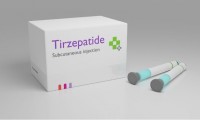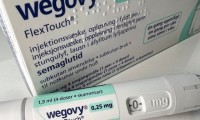-
Bausch + Lomb seeks funding for $1.75B eye drop acquisition from Novartis
- Source: drugdu
- 125
- September 14, 2023
-
NICE recommends Lilly’s tirzepatide to treat T2D
- Source: drugdu
- 106
- September 12, 2023
-
Weight-loss drug firm becomes Europe’s most valuable
- Source: drugdu
- 230
- September 6, 2023
-
Delaware’s Marlex Pharmaceuticals recalls 2 batches of heart failure drug after labeling mix-up
- Source: drugdu
- 223
- September 6, 2023
-
Bayer bets big on Kerendia’s potential to treat heart failure
- Source: drugdu
- 107
- September 5, 2023
-
Hamilton Medical’s urgent ventilator notice deemed Class I recall by FDA
- Source: drugdu
- 130
- September 4, 2023
-
Man-made antibody successfully prevents organ rejection after transplantation
- Source: drugdu
- 119
- September 1, 2023
-
Novo Bolsters Obesity Pipeline with Potential $500M Embark Biotech Buy
- Source: drugdu
- 210
- September 1, 2023
-
New dementia risk score ‘calculator’ shown to strongly identify disease risk
- Source: drugdu
- 117
- August 31, 2023
-
Weight Loss Drugs Cost Significantly More for Americans than Peer Countries
- Source: drugdu
- 183
- August 22, 2023
your submission has already been received.
OK
Subscribe
Please enter a valid Email address!
Submit
The most relevant industry news & insight will be sent to you every two weeks.













